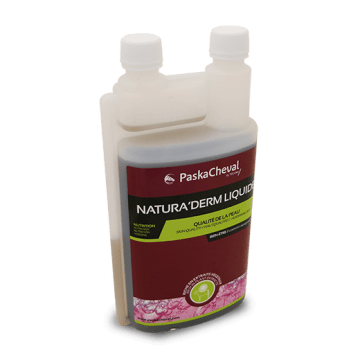Insects, especially flying ones, are a real nuisance to your horse’s health and well-being. Depending on the climate and location, the problem varies in severity during the summer months. Limiting the nuisance is therefore essential to maintain your horse’s well-being. But what are these insects and what risks do they pose to horses?
Why keep insects away from your horses?
Biting insects feed on your horse’s blood. To make it easier for them to draw and digest this blood, these insects use their saliva and, sometimes, venom. These substances can be allergenic, causing itching and skin problems. They can also have direct consequences on your horse's general health.
All biting insects can carry viral or bacterial diseases. Ticks, for example, can carry Lyme’s disease, caused by “Borrelia burgdorferi” bacteria. Insects can also carry diseases such as West Nile fever, equine infectious anaemia (EIA or Swamp fever) and diseases caused by streptococcal infection.
The pain caused by insect bites can trigger severe agitation in horses, causing them injury and stress. Some flies also tend to lay their eggs in the eyes. This can cause conjunctivitis, which may have serious consequences for the eyes if the problem is not treated in time.
Which insects pose a risk to horses?
The biting insect family includes a multitude of different flies. Hippobosca equina flies, also known as “forest flies” or “New Forest flies” are well known to be attracted to sensitive areas, such as the anus and the inside of the thighs. Like female Horseflies, these flies give very painful bites, causing violent reactions in horses.
This category also includes Culicoides midges, which cause intense itching. They are considered to be the primary cause of Sweet Itch. These small, slow-flying midges are not the only insects that cause a sweet itch. Female black flies are also responsible for this problem. Their bites are very painful due to the venom injected.

There are also Gasterophilus flies or Botflies. These are large hairy flies that can lay as many as several thousand pale yellow eggs in the hairs, mainly on the legs or chest. These eggs can then be ingested by the horse due to licking. Once they are inside the digestive tract, they hatch to produce larvae which attach themselves to the stomach lining. These larvae grow into large, ringed, reddish worms to become an internal parasite in horses.
Since ticks have no wings, they become attached to their host when it is close to their natural habitat. Horses on pasture are therefore more susceptible to tick bites. Pastures surrounded by hedges or forests are the highest risk areas for ticks.
Helping horses to reduce insect pressure
Naturally, horses chase away insects with more or less vigorous tail movements. Their mane, forelock and the twitching of their skin also help prevent these insects from landing.
Managing a good environment can also help prevent the development of these insects. Wet areas and poorly maintained bedding are ideal reservoirs for these insects. On pasture, the presence of trees is important for horses’ well-being, with shady areas less frequented by insects. These areas also help reduce sweat, which attracts insects. You can also help your horse repel these insects by fitting him with a fly bonnet or mask or a special fly sheet or rug.

Which insect repellent products can be used on horses?
Insect-repellent products, even natural ones, must comply with biocide product regulations to be marketed in Europe. They are a good way of stopping harassment by insects. They may be formulated with natural repellent substances or chemical products.
Natural substances include plant extracts, pyrethrum and fats. Fats stop flies sticking to the horse’s coat. They also have an insecticide action on some insects.
These products can be applied in gel or spray form, depending on the horse’s activity and how long you want the effect to persist. In particular, gel is more effective for horses during exercise when they tend to sweat. For a stable environment, insecticides exist that can be used to destroy insect larvae and disinfect stalls during mucking-out.
Insects are major pests for horses. They adversely affect their well-being and comfort and their ability to exercise. In addition, they can carry diseases. To combat these parasites, Paskacheval has designed its Paska'fly range containing pyrethrum derived from plants. Find this range at your nearest distributor.
Where to find Paskacheval products?
Find your nearest sales outlet
Paskacheval is a range of plant-based feed supplements and external care products designed to enhance the performance and well-being of every horse.




